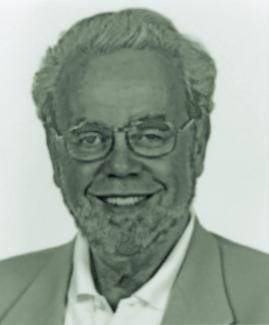Eminent scholar
Marked by displacement

Nazi rule and the personal experience of oppression deeply marked his thinking. His family lost its livelihood and became impoverished. Racist laws barred him from going to a state school. It was dangerous to walk the long way to a poor community school. He spent a year at home. In 1944, as the Soviet offensive was beating back the German army, the family managed to flee to Bucharest.
Cernea stayed committed to fighting discrimination of any kind. The violence and terror that marked his early life has contributed to his approach to social exclusion, marginalisation and injustice.
Cernea studied philosophy, paying particular attention to social matters and political economy. After the war, however, Romania’s democracy did not last long. The Communist Party’s early promises of freedom, equality and social justice soon evaporated. In a spirit of defiance, he wrote a doctoral thesis on the “Contradictions in Socialist Society”. It took him four years to get it accepted, and by then he knew that it would be impossible to pursue his interest in action-oriented sociology in his own country.
Academic institutions in North America became aware of his empirical work. He was invited to the USA and Canada and eventually decided to stay. With support from US senators, he managed to get the Communist Regime’s permission for his family to join him. Then World Bank President Robert McNamara, who was focusing on rural poverty alleviation, hired him, thus providing him with a prominent public platform to work as a development sociologist.
At the World Bank, Cernea made key contributions to laying the foundations of the socio-anthropology of development, a new field in applied social sciences. He won prestigious awards, the Kimball Award (1988) and the Malinowski Price (1995), for his pioneering work on basing public policy and development programmes on social-science knowledge. Cernea continues to be a scholar and a leading authority on forced displacement and resettlement.








